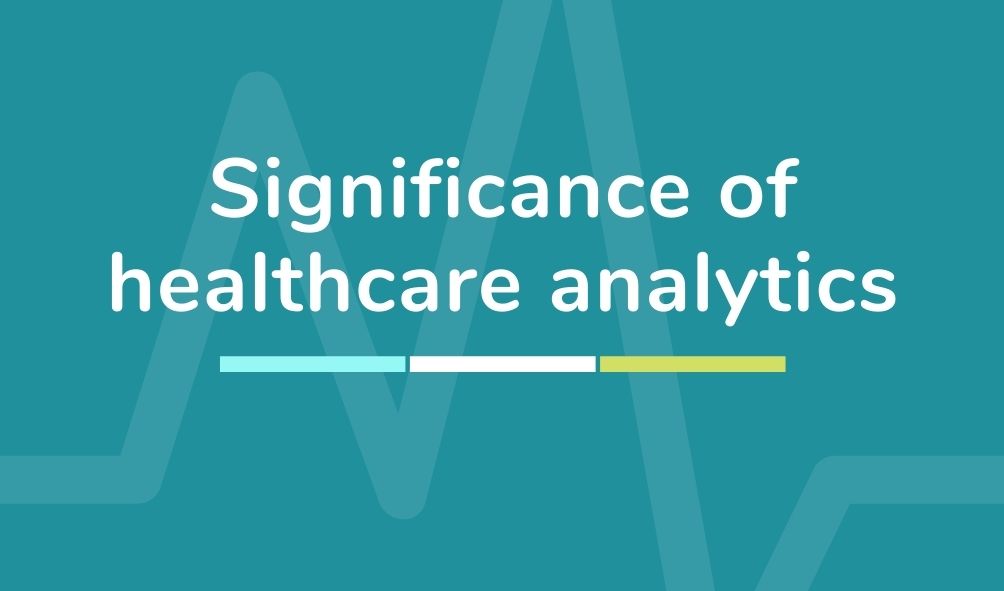
One of the most complex industries in the world is the Healthcare industry. They are faced with the most challenging tasks of making the best possible decisions for the patients and the industry as a whole, which include using resources efficiently and choosing the most feasible treatments. Effective decision-making impacts health outcomes and cost.
One of the key concerns in this industry is the ability to evaluate, plan and implement changes. Due to continuous transformations in the healthcare system, collection and interpretation of data is vital which aids the decision-making process.
Healthcare Analytics is poised to be an engine of healthcare improvements across the globe. It helps in enhancing care delivery and resource allocation. The industry will soon be habitual to making data-driven decisions, leading to better healthcare operations.
Big Data in healthcare offers numerous advantages over traditional analytics. It helps in analyzing the current and historical data to make future predictions precisely. Real-time data provided by the analytics tools allow healthcare personnel to gain unprecedented insights into diagnostics, treatment variance, and patient outcomes.
A healthcare dashboard emphasizes the patient details, their behaviors, research and development, and costs involved. By accessing this data, the research and development team can provide new innovative solutions that are properly monitored.
There are different areas where healthcare analytics play a significant role are:
- Maintaining Electronic Health Records
- Increase patient engagement
- Tracking of family donations
- Cure comorbidities
- Proper physician scheduling
- Help insurance companies to track and provide claims
As Healthcare analytics can show substantial operational improvement, below are few key areas where analytics can have the most impact.
- Electronic health records:
Electronic health records or EHR refers to each patient’s digital records that includes demographics, medical history, lab tests appointments and results, etc. This data can be accessed by doctors via secure Information systems for monitoring and providing adequate treatment purposes. EHRs can also help set reminders for patients to get regular check ups. - Tracking of foundation donations
Many hospitals and clinics are benefited by the generous donations in their yearly budgets. Organizing and tracking these contributions are two very aspects. - Physician scheduling
Health analytics gives an aerial view of physician’s records and patients’ histories. This way, the right doctors can be assigned to the respective patients. This helps in speeding up the healing process and improves the patient’s satisfaction. - Insurance companies
Healthcare Analytics provides a simpler approach to track people’s claim plans. Hence, the medical insurance companies can better visualize the needs of the people and make policy changes accordingly.
The industry has been working to push through a lot of unprecedented medical conundrums such as COVID-19 and on to a brighter future. Healthcare Analytics will surely help in day-to-day decision-making and usher in a new era of exciting breakthroughs. These technologies are likely to continue being an integral part of healthcare going forward.
Here is how we at Cintel.io can help you:
As the organizations keep growing and expanding, the significance of these operational reports increases. These provide a time to time picture of the entire organization or division and help the leaders track their performance. Be it any industry or domain, operational reporting is imperative to stay on top of all the processes and get a concise yet complete view. With the emergence and wide acceptance of BI, operational reporting is bound to make positive change across the hierarchy and horizontally too.